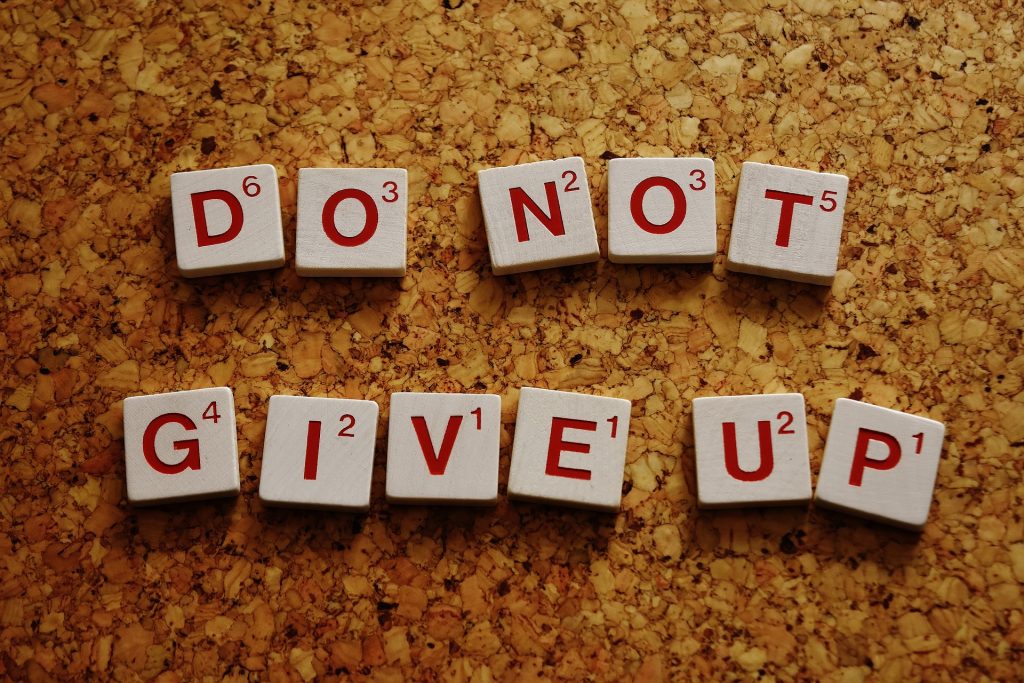
Behind every high-quality output—may it be a blog, article, copy, or research paper—is all hard work and dedication. That’s why you really need love and intense passion for the craft if you want to become a writer.
People won’t see the time you spent planning, outlining, and reviewing your piece. Not to mention the crazy deadlines, confusing and vague content briefs, all endless considerations, and the art of finding the perfect tone and strategy to gather your readers. But they will know how your writing intent made them feel, understand, or how it has benefited them.
Sure, becoming a writer is challenging but never impossible. Regardless if you’ve been a freelancer your whole life or you just realized you want to pursue this passion now at 30, you too can be the writer you aspire!

I once struggled to build my career too. I was a 19-year-old with no portfolio to show and writing experience to put on my resume. Back then, I didn’t know where to start, and I wasn’t sure if my skills were par with the experienced writers.
But now, I have been writing for three years. I’ve worked for various clients. And I have tried content writing, copywriting, technical writing, external and internal communications, and more, even created my own blog!
Yes, beginnings are typically overwhelming. So allow me to share with you all the things that worked for me and helped me become a writer. My techniques may not entirely work for everyone, but you may pick up a few helpful guides to start your writing career.
Become a Writer Tip 1: Preparing Yourself

This may sound like it has nothing to do with writing, but this step is vital, especially for beginners.
Before jumping on board into anything, you need to make sure that you are indeed ready. I am not talking about your skills or experiences. You have enough time to learn and improve in that area.
I meant your mental state. Remember, writing is a competitive industry. Without a positive emotional and mental mindset, engaging yourself on the battlefield could crash you.

Importance of Mental and Emotional Preparations
This was a mistake I made when I was starting. When I decided to be a writer, I immediately hopped to the first company that accepted me. No questions asked.
At first, it seemed like everything was going well. Until I had to deal with my first rejection, second, and then led to a lot more rejections after that.
It was frustrating! I began asking why I couldn’t do it right? Did I make the right decision to switch my career path so rashly? Is it even worth it? I also struggled with the pay, accepting a writing job that could barely support my needs. It would have been nice if the job had a training program to help me flourish, but no, I was all on my own.

At some point, it almost seemed to me like I was on a dead-end. I used to have all the enthusiasm in me, but I don’t know what to do with it anymore.
You should know that writing is somewhat a self-involved job. You have to do projects by yourself. And if you can’t emotionally and mentally support yourself while at it, you could easily hate the role.
What I am trying to say is that who knows what challenges await. It’s nice to get all the support you need. But, if you can’t get it from other people, then it should begin with you.
Become a Writer Tip 2: Determining Your Field of Expertise

No matter how talented you are at writing, it’ll take time to master all the writing styles in all writing fields. It’s not impossible, but it will involve years of practice, training, extensive research, and application.
So instead of hurrying to learn everything in one sitting, why not determine the style and career path you want to pursue based on your proficiency. Hone your existing skills, take time to absorb everything you need to discover from one field before jumping into the next one.
To help you decide on what path to pursue, here are the most sought-after career paths for aspiring writers.
Content Writer
They are jack of all trades. Content writers write pretty much about everything from scripts, blogs, web content, etc. They may as well craft content meant to inform, promote, entertain, and so on.
Technical Writer
Tech writers, like me, are somewhat like Content writers, but we lean more into techy topics. Our goal is to help our users understand, use, and fix their tech stuff in the simplest way possible.
Copywriter
They are in charge of creating product descriptions, ads, taglines, and other marketing stuff. Usually, they write short bits of appealing writeup that will push readers to do an action. Action often refers to buying and subscribing.
Journalist
If you are a journalist, you will write up-to-date news and stories. This career expects you to have strong research skills. You should also know how to ask all the right questions because you are most likely to interview people of all kinds. They usually work in radio, newspaper, or television.
Communications Writer
Sometimes referred to as Communications officers, they are usually a private or public organization’s representative. They take care of publishing a press release. They also answer media queries and the likes. Their biggest responsibility is making sure that all updates are shared with all the key people who need to know.
Poet
Writers who are into writing poems and are very passionate about poetry can be a poet.
Author
Authors are probably the most widely known type of writer. When you tell people you are a professional writer, they assume you’ve published a book. But if your goal is to print as many books as possible, you may want to become an author.
Become a Writer Tip 3: Investing in Writing Courses

Even a man as accomplished as Michael Angelo said he is still learning at 87, why won’t you?
The writing industry is not as static as you think it is. What works now for your readers may not be as efficient tomorrow. Or writing styles that your middle-aged readers are so into may not be as appealing for teen readers. Similarly, standards or techs like SEO may change without warning.
You can’t expect everything to be constant in this industry. That’s why it’s important to upgrade your existing skills too. Being flexible will help you become a writer that can survive in the ever-changing world of writing.
If you are looking for affordable but high-quality courses, you may want to check these learning platforms out:
- SkillShare
- LinkedIn Learning
- Coursera
Become a Writer Tip 4: Freelancing

One of the best ways to improve your writing skills is by practicing. If you want to practice at your own pace and without pressure, it’s okay. But, if you are looking to get out of your comfort zone as you polish your skills, I’d suggest you freelance. Plus, you can earn extra money, so it’s a win-win.
Many websites offer freelancing gigs for aspiring writers. You don’t even need to talk or find your own clients. Here are some of the freelancing websites I’ve tried over the years:
Become a Writer Tip 5: Building Your Portfolio

Don’t throw all the contents you’ve written because you’ll need that to become a writer.
After learning the basics and having experience in the real writing world, it’s time to build your portfolio. Let employers see your unique style of writing and impress clients.
Although freelancing is mostly ghostwriting gigs. Once you sell your work, you cannot own or use those content for your portfolio. But it’s okay, there are other workarounds you can do. For example, apply for a writing company that allows you to byline your works.
If that’s not an option, consider creating a website as I did. With a website, you can write all the content you want with your name as an author on it. Several CMS offer free websites like:
But with free websites, you can’t personalize your site name. If you want a more personalized online presence, buying a hosting and domain name is an option. My domain name and hosting services are with Crazy Domains.
Become a Writer Tip 6: Exploring Possibilities and Growth

Go ahead, gain all the confidence and skills you need. Trust the process, and once you are ready to go for something bigger, seize the opportunity.
It’s innate for us writers to thrive on challenges. We want excitement, fire, spark; we love working on new things! For some reason, the difficult task keeps us moving no matter how hard it may seem. And if it helps you write high-quality works, you have to give in to that.
And while you are there, grab every chance that you are sure will help you grow and improve. Be open to new experiences, learnings, and mentorship. Always remember that every day is a chance to learn.
But, I want to point out that to become a writer doesn’t mean always saying yes. If there are projects you think are not helpful for you professionally, mentally, or emotionally, don’t be afraid to say no. It may sound like a cliché, but to succeed in anything, and yes, that includes writing, you must be happy with what you do.
Final Tip to Become a Writer

As someone who’s been a writer for three years, it’s safe to say that it’s the most fulfilling years of my life. I am not exaggerating. And so, if you are passionate and you really intend to be a professional writer, I say go for it!
I hope these tips that worked for me somehow helped you plan how you’d pursue your career. And if you are already there, let us know how it worked out for you in the comment section.
